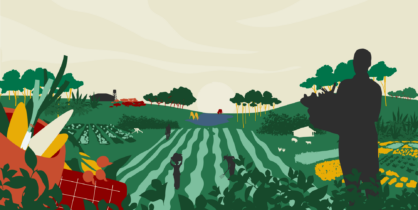Saving Water in Dry Climates
How Cape Verde can benefit from agroecology.
Off the western coast of Africa lies the archipelago nation of Cape Verde, a stunning collection of 10 volcanic islands that cover a mere 4,033 square kilometers and are home to a population of approximately 580,000 people. Like other countries in the West African region, this small nation faces urgent challenges due to its environmental vulnerabilities, high poverty rates, and global rising temperatures.
However, unlike its neighbors, Cape Verde also possesses limited arable land and is highly dependent on food imports. Factors such as water scarcity have led to more than 80% of food being imported, making the country particularly vulnerable to external disruptions in supply chains. Improving the stability of the agricultural sector is pivotal to a more resilient future for this island nation.
Sustainable farming practices in harmony with nature might offer a path towards resilience and self-sufficiency.
Cape Verde’s agricultural challenges
The country’s landscape is characterized by steep slopes, deep valleys, and small-scale, family-oriented farmed land. Only about 11% of the total area of Cape Verde can be used for agriculture, with the biggest island, Santiago, providing 52% of the nation’s agricultural land.
Most West African agriculture is highly dependent on rainfall, and Cape Verde is no exception. The two types of agricultural systems identified in the country are rainfed agriculture, practiced on the slopes during the rainy season, and irrigated agriculture, practiced year-round mainly on the lower slopes of the valleys and on small plateaus. However, almost 82% of all farming depends on rainfall, making Cape Verde very sensitive to unpredictable weather.
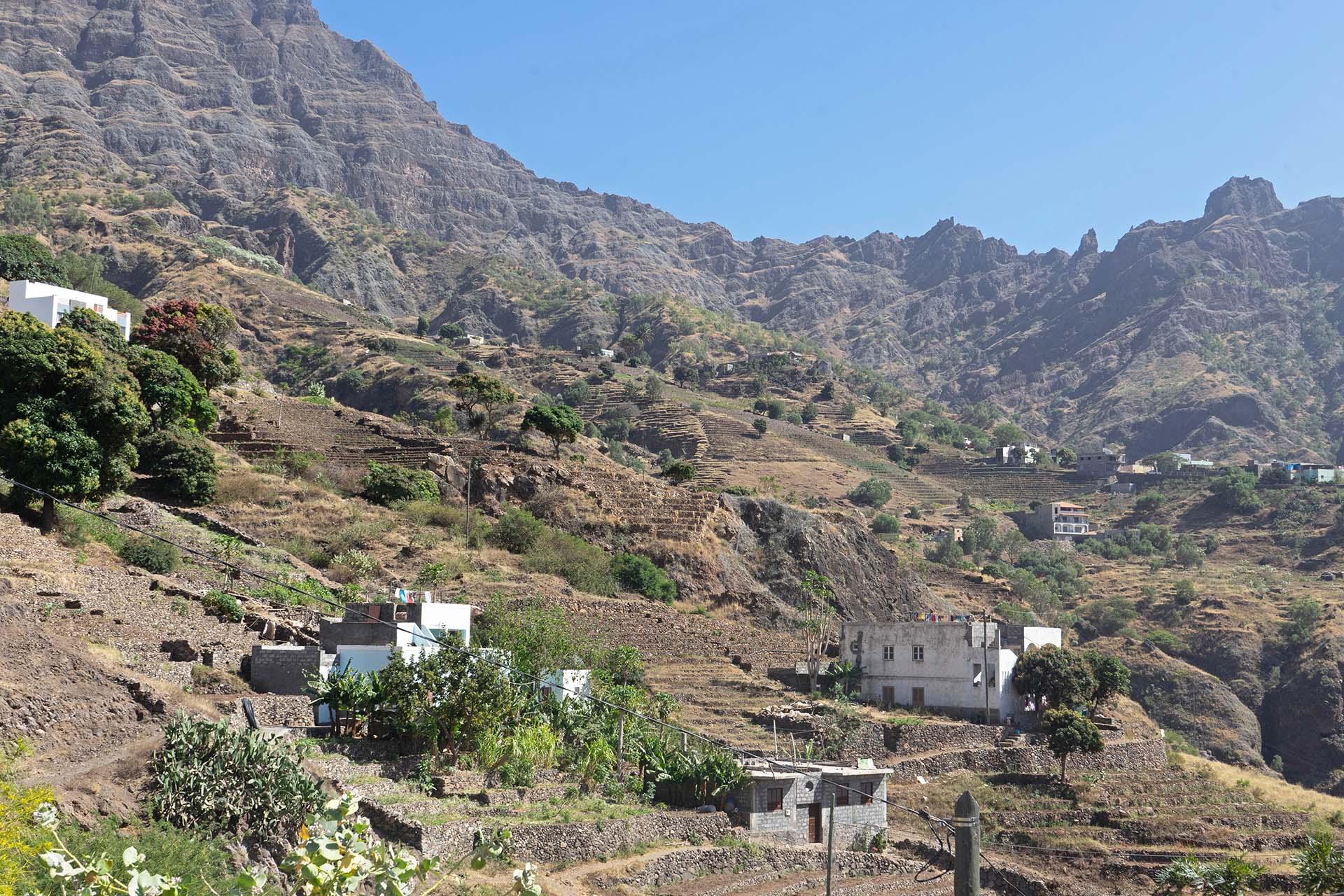
The subtropical and dry climate of Cape Verde includes a long dry season, with several islands influenced by dry winds from the Sahara. Over the past years, due to climate change, the frequency and duration of the dry seasons have increased, causing severe periods of drought. Since the 1960s, the mean precipitation has been noticeably decreasing. Extended periods of drought can cause major problems, even in the areas with irrigation (using water from dams) as there are no permanent surface fresh water sources in Cape Verde, and together with the irregular and insufficient rain, this has the largest negative impact on agriculture and water supplies.
Extended periods of drought can cause major problems, even in the areas with irrigation (using water from dams) as there are no permanent surface fresh water sources in Cape Verde.
Extended drought has many negative consequences across all 10 islands, such as the reduction of groundwater supplies, fewer animals, soil erosion, and desertification. The mountainous terrain of the islands and unpredictable rainfall also cause random yields, resulting in unsteady agricultural productivity. Consequently, Cape Verde’s economy also struggles.
The country is highly dependent on money and food from abroad and imports significantly more than it exports. Current agricultural production only covers approximately 10-15% of the food needs of Cape Verde’s growing population. The present-day system mostly focuses on producing enough food for the local population, leaving very little to sell or trade.
“We feel the impact of climate change very strongly on all the islands,” explains Amilton Ary Fonseca Lopes, agriculture specialist at Associação de Defesa do Património de Mértola (ADPM), an association that runs several conservation, promotion, and resource enhancement projects in Cape Verde. “Precipitation has diminished drastically, and the previous drought period was three years of no rain. Agriculture and small-holder farmers suffer the most from this,” he adds.
We strongly feel the impact of climate change on all Cape Verde islands.
Amilton Ary Fonseca Lopes
Armindo Cosme Duarte, a farmer and agricultural technician, confirms these effects and emphasizes how increased temperatures have negatively affected farmers and their businesses. “The sun used to be less hot, and this has created many problems for us. One of the worst ones is the increase of pests,” he says, adding that “this has caused a huge shock to the economy of the agricultural sector.”
What is agroecology?
To address Cape Verde’s pressing issues, such as water scarcity and soil degradation, agroecology emerges as a potential remedy. Defined as a sustainable farming approach that harmonizes with nature, agroecology aims to recover the relationship between humans and natural ecosystems to ensure soil health and biodiversity, by working with, not against, the elements of the natural environment.
Its reliance on farmer-to-farmer knowledge exchange and compatibility with the structure of West African agriculture makes it a promising and adaptable solution without requiring extensive land restructuring. Overall, agroecological practices will lead to more sustainable and climate resilient food supply systems, increasing nutrition security for all.
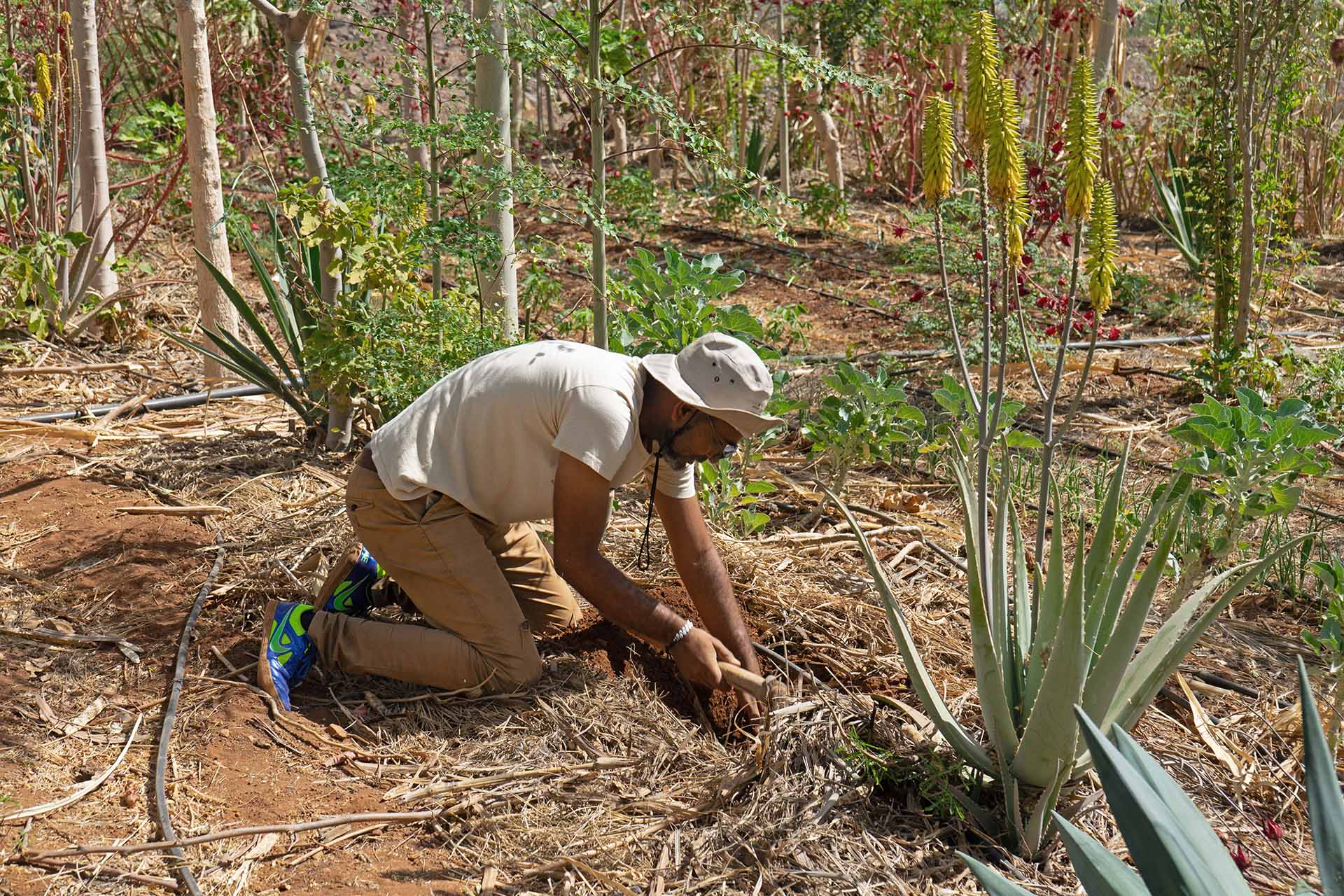
How agroecology can benefit Cape Verde
Several important elements of agroecology could be of value to Cape Verde. First, the diversification of crops is key to ensuring food security and nutrition. An example of diversification could be the use of intercropping, which is the process of combining complementary tree and crop species in lines on a piece of land to increase spatial diversity and use natural resources (mainly water and light) more efficiently. This would enhance the use of Cape Verde’s limited available farmland and increase the resilience of agricultural soils to erosion and heavy rain thanks to diversified root systems.
Further techniques such as using improved seed quality and storage ensure farmers can grow crops that are resistant to extreme weather conditions marked by increased temperatures and more intense rainfall. This is essential, as farmers are highly affected by these phenomena.
“We see climate change happening in front of our eyes. In February, the sun is already as strong as it used to be in May, killing plant leaves and drying our soil,” says Josefa Delgado, farmer and president of the Women Association of Planalto Leste (AMUPAL).
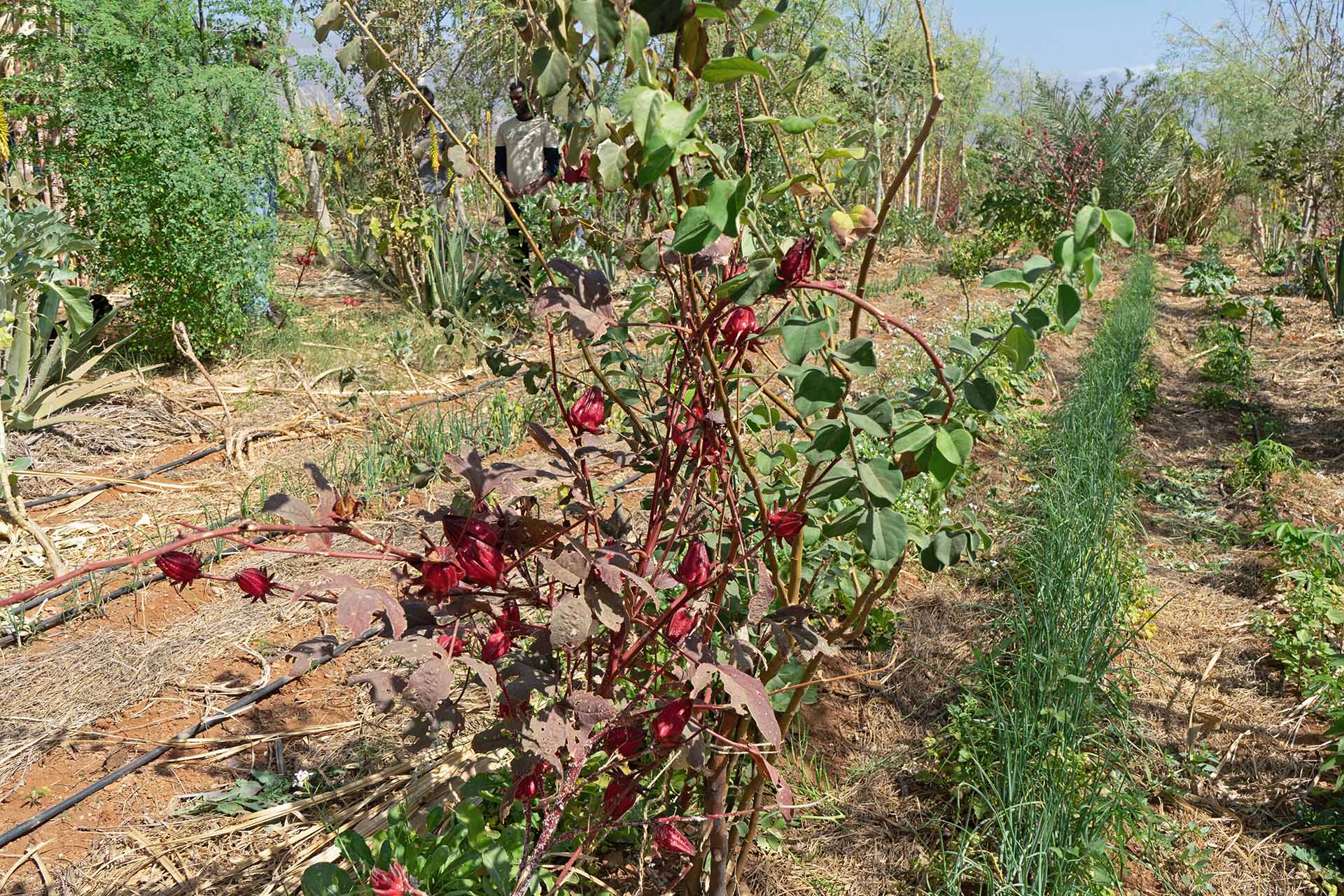
Another essential element is co-creation and the sharing of knowledge. Education plays a fundamental role in sharing and implementing agroecological innovations that can address challenges across food systems and adaptations to climate change. Blending traditional and indigenous knowledge, producers’ knowledge, and global scientific knowledge is central to this process.
Josefa gives an example of this, as she explains how she shared with her community that covering soil with dead leaves from the forest keeps moisture in the soil for a longer period and increases the amount of nutrients, which leads to improved crop yields. She sparked enthusiasm among other farmers, who adopted the practice after seeing the benefits it provided on Josefa’s land.
A third agroecological approach of high importance to Cape Verde would be efficiency; innovative agroecological practices produce more using fewer external resources. Reducing dependency on external resources empowers farmers and producers, and enhances their resilience to natural or economic shocks. This is vital to Cape Verde’s path to becoming less dependent on imported food and other resources.
We see climate change happening in front of our eyes.
Josefa Delgado
However, perhaps the most important agroecological practices for Cape Verde are efficient resource management and recycling, especially when it comes to water; sustainable and efficient water use in the country is vital to mitigate water scarcity. Practices such as intercropping, agroforestry, mulching, and even cover crops contribute to this, but more is needed to decrease dependency on rainfall. The island nation also needs to increase water availability by building water collection, retention and distribution infrastructures.
According to the FAO, a total of 45% of Cape Verde’s irrigated land already uses drip irrigation systems, which highly improves water availability and utilization efficiency. However, it is still necessary to provide more guidance and training to farmers on how to use these water-saving systems and how to achieve proper maintenance of them to ensure increased profitable water reuse for food production.
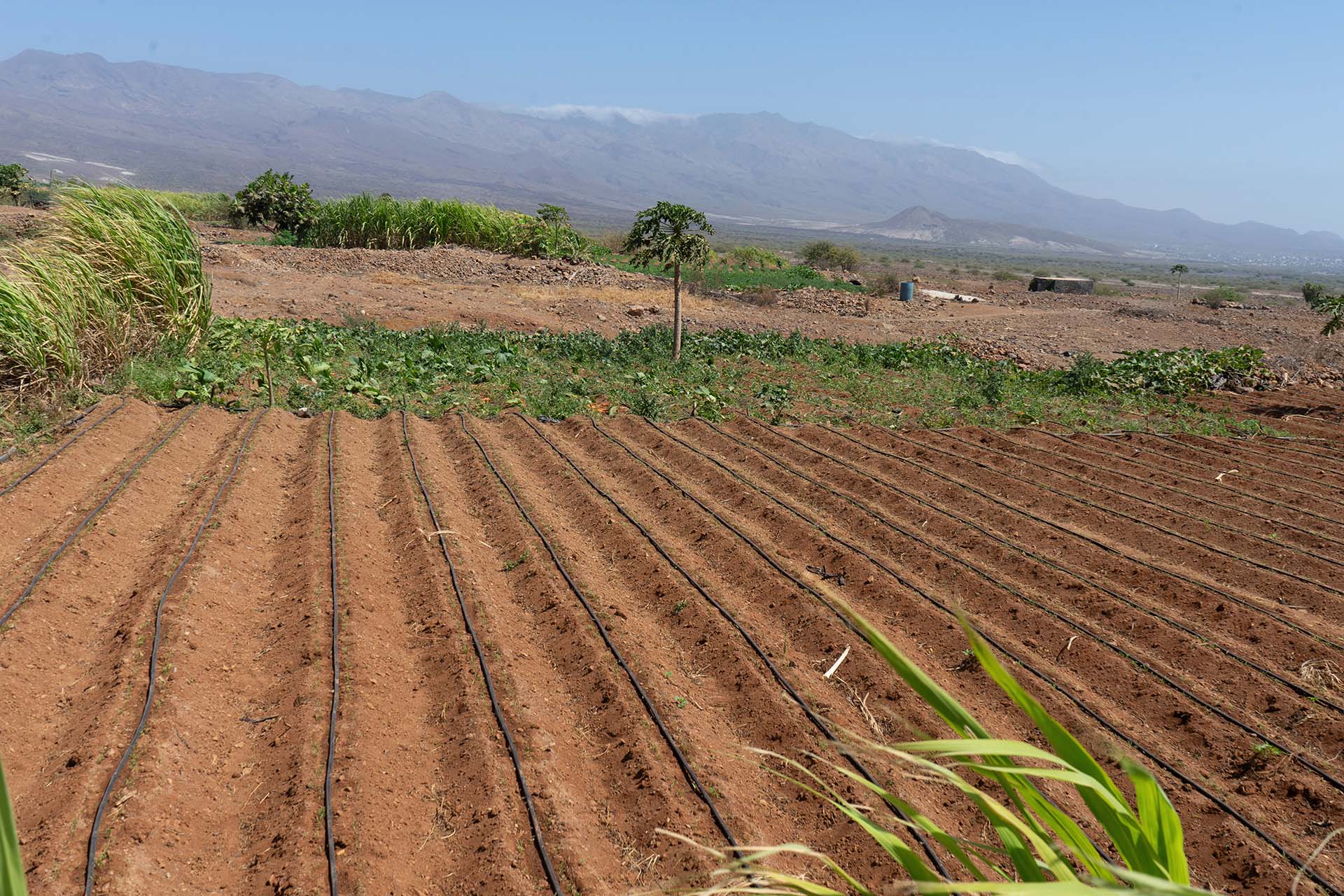
Barriers and opportunities
Several hurdles impede the widespread adoption of agroecology in Cape Verde. Firstly, financial accessibility poses a significant obstacle, as most investments in West African agriculture largely favor export commodity production, leaving smallholder farmers, particularly women, struggling to secure credit for transitioning from subsistence farming.
Secondly, issues surrounding land and water access aggravate the situation, exacerbated by rapid population growth, urban expansion, and land grabbing, resulting in reduced resources for local food production. Additionally, limitations in accessing seeds and natural materials, inadequate markets for agroecological produce, insufficient political support, and inadequate research funding, all contribute to the challenges faced in Cape Verde.
Thirdly, educational issues arise. Across most of the islands, there is a notable absence of official training in agroecology and, as Delgado also comments, “farmers do not even know they are already doing agroecology,” with only a handful of available courses that are sporadic and reliant on external funding and temporary research projects.
This lack of education also reflects on the price to be paid for this type of product, as no added value costs are charged for agroecological products, and they enter the market at the same price as conventional products.
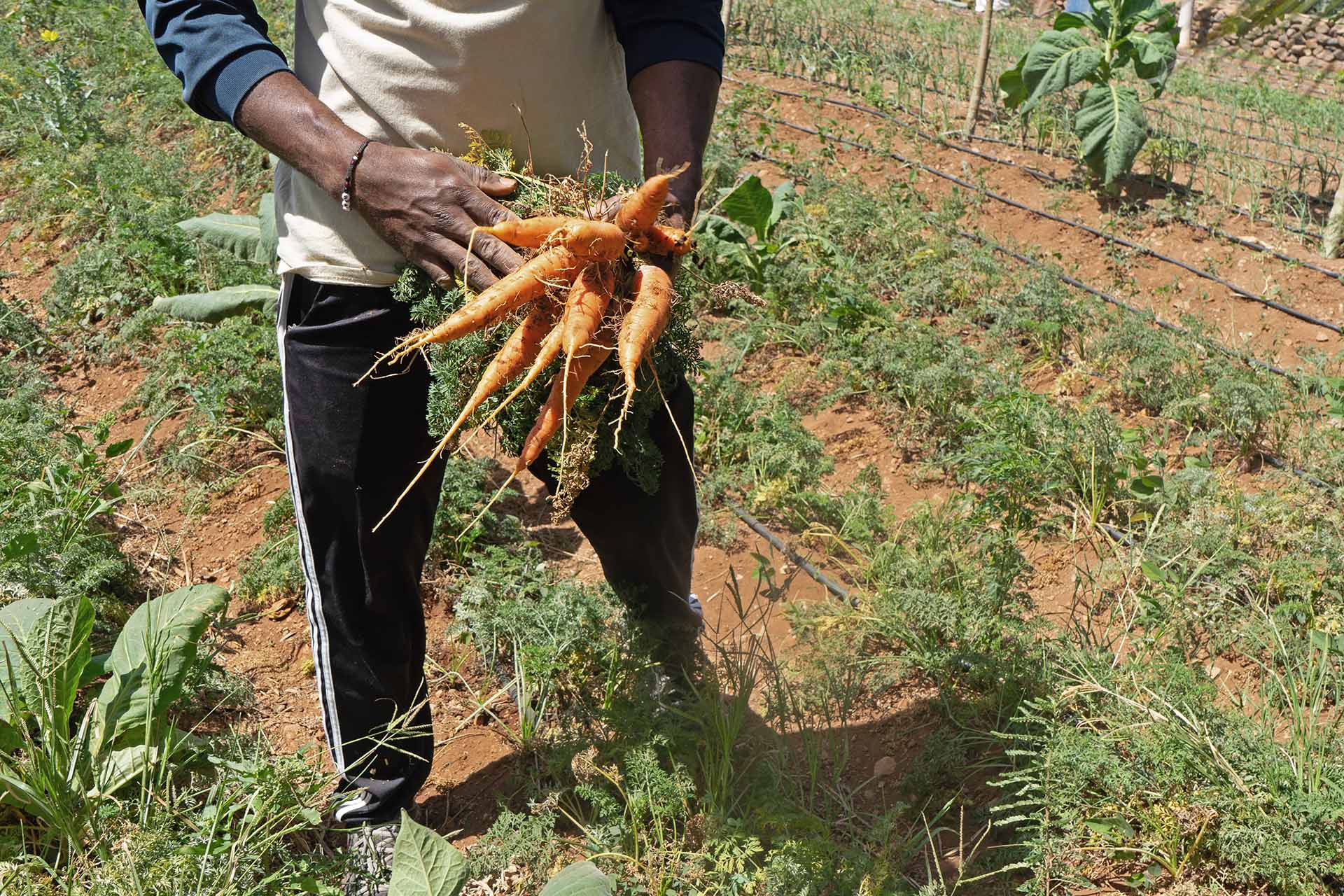
Several steps can be taken to promote and advance agroecology in Cape Verde, and in other West African countries as well. Adopting integrated food policies that bring together different sectors’ strategies under a common food system goal could be a strong way forward. By having long-term plans and involving various groups in deciding what is essential for food systems, these policies can create a unified approach toward agroecological transitions.
Linking food sovereignty and territorial development to new economic models can help agroecology thrive. When societies recognize the extra benefits agroecology provides for the environment and communities and create systems to support these advantages, it could encourage its growth alongside traditional economies.
“The strong point of agroecology is to profit from what we already have here on the island and to not depend on external markets. It helps us, and especially small-holder farmers, to gain a certain autonomy, which is really what we are looking for to create better food security in Cape Verde,” says Fonseca.
Furthermore, positioning agroecology as a response to crises like diseases and climate threats could be crucial. As these challenges increase, agroecology’s emphasis on diversity and adaptability becomes more valuable, potentially making it a vital part of climate mitigation strategy and crisis response.
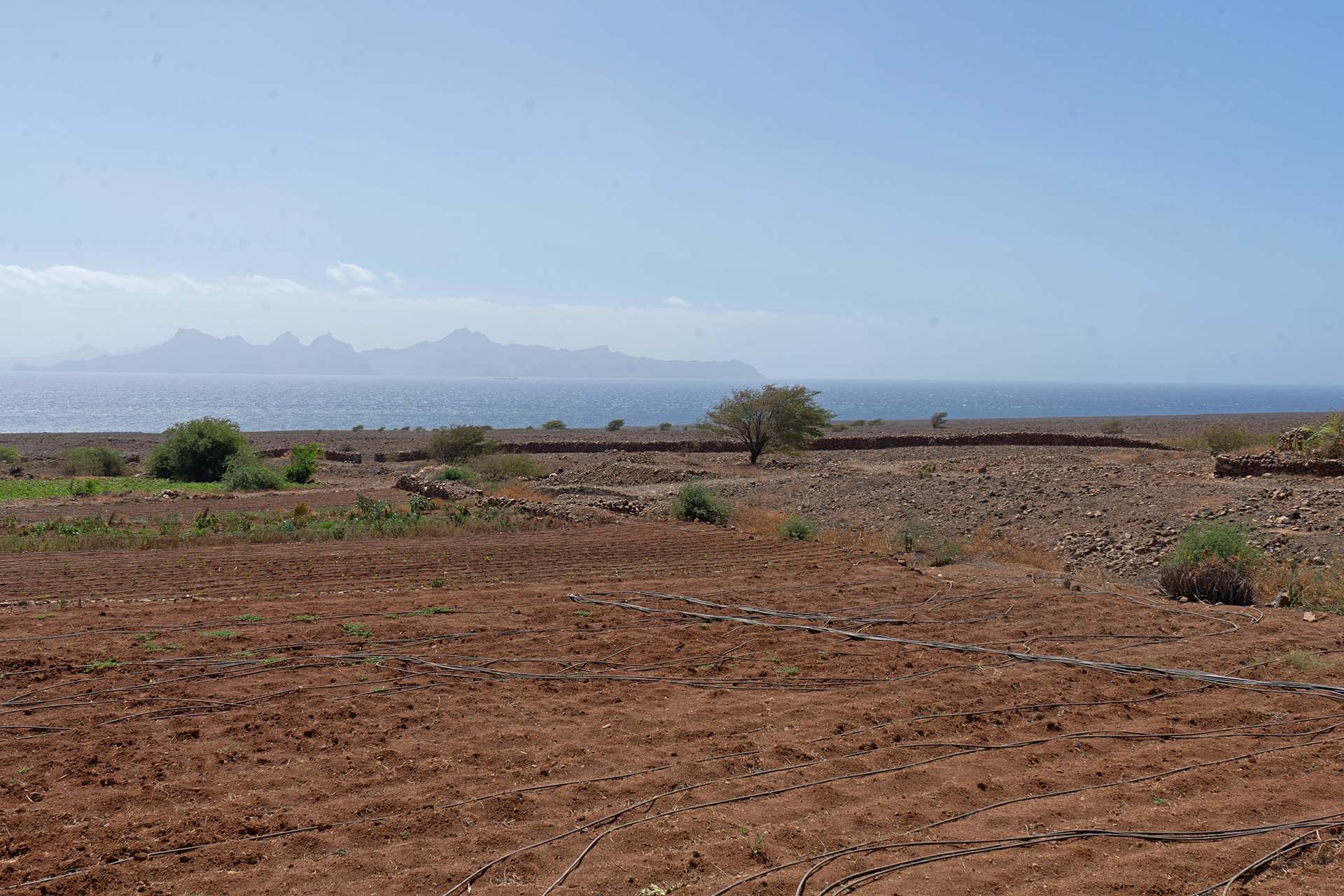
Cape Verde faces complex challenges that require innovative and sustainable solutions. Alleviating poverty, combating desertification, tackling water scarcity, and decreasing dependency on food imports are important yet challenging tasks for the future. However, agroecological practices might offer a path in the right direction.
These practices include better water management (including capturing and storing water), maximizing the efficient usage of water resources in agriculture, and providing guidance and training to farmers. Furthermore, improving the infrastructure of irrigated areas to reduce the dependency on rainfall, targeted agricultural policies, and more research on how to reuse water safely can bring great benefits. Sustainable farming practices in harmony with nature will take time to grow, but undoubtedly pave the way for a resilient and self-sufficient Cape Verde.
Projects such as CIRAWA, an EU-funded initiative that puts people and ecosystems at the center, also contribute to these goals. CIRAWA is developing new agroecological-based practices that build on existing local and scientific knowledge to help create more resilient food systems. They work with small-holder farmers to improve food nutrition, local livelihoods, and ecosystem health in Cape Verde, as well as other West African countries such as Senegal, Ghana, and the Gambia.

